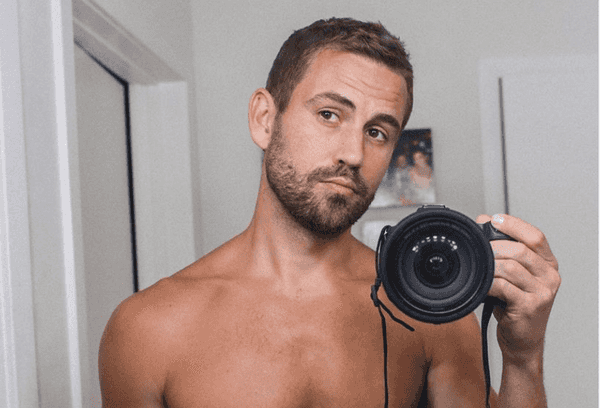It's National Eating Disorders Awareness Week, and I am so here for the posts I've been seeing from friends and peers about their journeys in recovery, especially as it portrays the strength they've gained and the happiness they've felt. I'm so thankful for their recovery and their advocacy. While I'm grateful for those who share their stories and I don't want to police the ways in which anyone does so, I do believe we have to be responsible in the ways we share — and that, in my opinion, means not including before-and-after pictures.
Before-and-after pictures related to eating disorder recovery usually are utilized to portray how an individual's weight gain is a symbol of their recovery — that the picture of their smaller self, usually on the left, is taken during their times of sickness, and that the picture of their larger self, usually on the right, is one that was taken recently or after a period of recovery.
Gaining weight is a part of recovery for some and accepting that can be a big milestone for some individuals in recovery. It's OK to be proud of the progress you've made mentally and physically. However, we have to keep in mind some important aspects.
First, not all people struggling with eating disorders are thin or underweight. People struggling with bulimia nervosa, binge eating disorder, and Other Specified Feeding and Eating Disorders (OSFED, previously diagnosed as Eating Disorder Not Otherwise Specified, or EDNOS) may be a "normal" weight or even "overweight." I put these words in quotations because what really is a "normal" weight and what is "over" that? So many factors play a role in someone's weight and such variation exists.
But by posting before pictures of ourselves in our smaller body, we further invalidate individuals who didn't look that way when they were sick, causing them to spiral further or feel undeserving of help. We further spread the idea to our friends and followers on social media that people who are struggling are thin, and that those who aren't thin aren't struggling. This is an extremely prevalent and dangerous stigma held by many individuals today that we have to fight towards fixing.
Second, by posting those before-and-after pictures, we present an idea that someone who has gained weight is in recovery and doing well on some level. This negates those whose anorexia may have turned into binge eating disorder or those who have physically recovered but feel far from mentally recovered. There are five stages of eating disordered recovery — as you can learn about in Embody Carolina trainings at the University of North Carolina at Chapel Hill — and people go through these stages at different times. Sometimes, those who have gained weight are assumed to be well and are there not checked up on, validated, or supported like they've needed to be for their health and well-being. That's a problem.
Third, by posting those pictures, we are in a sense saying that eating disorders are about food and weight and body image. While those are certainly parts of it, many, many other factors exist that we have to continue to discuss. Underlying issues are often causing the eating disorder, and they can include trauma, the need for control, divorce, questions of sexuality, depression, anxiety, and a host of other factors, which are also discussed in Embody Carolina trainings, in which you can learn how to be a compassionate and effective ally to those struggling with eating disorders.
I know that no one posting these before-and-afters has bad intentions and I understand that people have a lot of reasons for posting what they post and that they have a right to do that. However, in order to share responsibly, these need to be completely left out of our eating disorder awareness — not written with excuses or pretending that they're different than what they are.
Some important questions to ask yourself before posting your story include: Who will benefit from these pictures? Could someone be triggered? What are my intentions? How could I better present the beauty of eating disorder recovery?
According to the National Eating Disorder Association's guidelines, we want to be careful to avoid numbers as well — such as weights, calories eaten, miles run, et cetera — because they can also be triggering "numbers games" that don't help anyone and can actually be very harmful by causing other individuals who are struggling to compare themselves and feel the need to restrict more, weigh less, run longer, and so on.
I believe eating disorder survivors have a more powerful story to share. Personally, I would love to hear someone's favorite recovery quote, or how they fought really hard to not engage in a disordered behavior and won, or about their first time climbing again, or how they've finally found joy in moving their body, or their favorite food that they can now eat without their eating disorder's voice, or about their recovery of the underlying cause of their eating disorder, or how they've rebuilt relationships broken by their disorder, or anything along those lines. Those are the happy stories that people need to hear and will be encouraged by.
You don't need to "prove" you were sick. Your story is so much more than that, and I want to hear it.
---
If you believe that you or a friend is struggling, you are not alone. The National Eating Disorders Association has plenty of resources here and Embody Carolina at UNC-Chapel Hill hosts training for allies, for which you can sign up here.





















